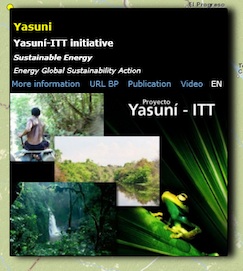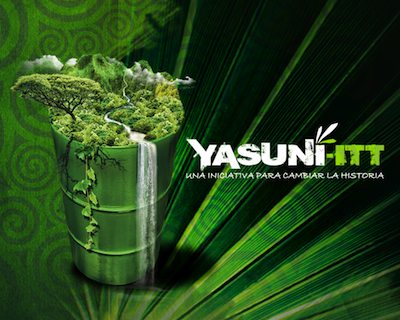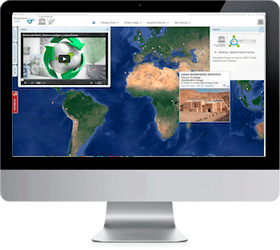A case of innovation in Global Sustainability Governance. Prevents emission of 400 millon tonnes of CO2 keeping the oil underground in Yasuní biosphere reserve.
 The Yasuni-ITT Initiative aims to avoid extraction of 20% of the oil reserves of Ecuador which is committed to achieve up to 95% of the energy matrix from fully renewable sources by 2016, up from the current 60 to 65%.
The Yasuni-ITT Initiative aims to avoid extraction of 20% of the oil reserves of Ecuador which is committed to achieve up to 95% of the energy matrix from fully renewable sources by 2016, up from the current 60 to 65%.
The President of Ecuador, Rafael Correa announced in 2007, at The General Assembly of the United Nations, the country’s commitment to maintain indefinitely unexploited reserves of 846 million barrels of oil in the ITT (Ishpingo-Tambococha-Tiputini), equivalent to the 20% of the country’s reserves, located in Yasuní National Park inside Ecuadorian Amazon.
“This would be an extraordinary example of global collective action, that would allow not only reduce global warming, which benefits the whole planet, but also introduce a new economic logic for the 21st century, which assigns a value to things other than merchandise.” In effect, the president Correa proposed the international community contributes financially with at least 3.6 billion U.S., a sum that represents half of the revenue lost to the Ecuadorian state.
The money would go into a capital fund to be administered by the United Nations Development Program, UNDP with the Ecuadorian State, Ecuadorian civil society and contributors’ representatives.
This initiative will allow avoiding the emission of 407 million tons of CO2, the main gas causing global warming. This reduction is greater than the annual emissions of countries such as Brazil or France.
The Yasuní National Park (Biosphere Reserve) is the most important reservoir of biodiversity on the planet and home two indigenous peoples in voluntary isolation in Ecuador, the Tagaeri and Taromenane.
Yasuní-ITT initiative web site
















